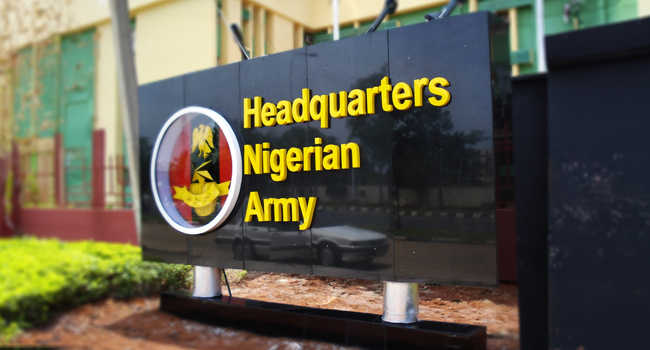Thousands of people have fled Rann, a remote town in Borno State, Doctors Without Borders (MSF) said on Wednesday, after Boko Haram fighters attacked a military base and torched aid buildings.
Monday’s attack in the town, near Nigeria’s border with Cameroon, has been blamed on the Islamic State West Africa Province (ISWAP) faction of Boko Haram, which has carried out similar raids against troops since July last year.
The upsurge in violence has forced tens of thousands of people to flee, including internally displaced people (IDPs) who have returned home after previous attacks.
Last week, the United Nations said there had been a “massive displacement” of more than 30,000 people after ISWAP strikes in and around Baga, on the shores of Lake Chad, in northern Borno.
READ ALSO: Troops Counter Boko Haram Infiltration Into Gajiram
Military and humanitarian sources on Tuesday told AFP seven people were killed in Rann, including three soldiers.
But the medical charity’s emergency programme manager, Hugues Robert, said they were told the death tally was higher — and that some 10,000 people had fled to the border.
“The figures we got yesterday from people who have been there… were 14 people died,” he told AFP by phone from Geneva.
Burning buildings
Rann, which is is some 175 kilometres (110 miles) northeast of the Borno state capital, Maiduguri, has now been hit three times since March last year.
The first attack killed three aid workers and saw three others kidnapped. Two of the three were later executed. The last attack happened in early December.
More than 27,000 people have been killed in northeast Nigeria since the Islamist insurgency began in 2009 while some 1.8 million people are still homeless.
An MSF nurse who had been to Rann to assess medical needs after the attack said the town was eerily silent, “like a graveyard”.
“The town has been devastated and I was devastated to see it,” Isa Sadiq Bwala was quoted saying in a statement. “Many parts of the town have been burnt.”
MSF’s base, office and pharmacy were completely gutted by fire and its equipment store was still burning. Other humanitarian organisations’ buildings were looted and burnt.
Staff members were safe but there was a “long line” of civilians heading to Cameroon, he added.
“Some had donkeys but many were just carrying their belongings. The ones I spoke to said they were leaving because they were too afraid to stay,” said Bwala.
“There is not much left for them to stay, anyway. Their homes are gone and I don’t know what they would live on. The market was burnt and looted — food stores also,” he added.
Civilians hit
Some 35,000 IDPs were staying in Rann at the time of the attack, according to the International Organization for Migration (IOM).
Many of those who fled went to the nearby town of Bodo.
“Our team in Bodo estimates that some 8,000 people arrived yesterday and we expect several thousand more may come today,” Robert said in a separate statement.
“We are preparing to assist 15,000 people with food, water and medical care over the coming days.”
The new arrivals, many of whom Robert said were shocked and distressed, are likely to further stretch resources in the impoverished region.
Vulnerable children, pregnant women and breastfeeding mothers spent the night in the open because of a lack of shelter, he added.
“The people of Borno continue to pay the price for this merciless conflit. All the warring parties must respect the safety of civilians,” he added.
There is wider concern about the impact of the violence on relief operations, particularly in isolated locations such as Rann, which is often cut off by flooding or bad weather.
AFP



